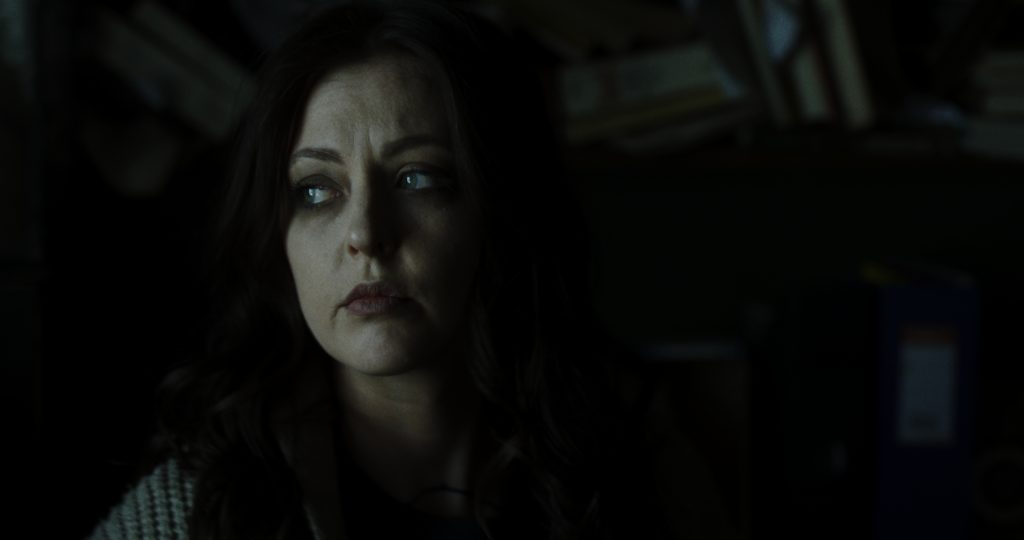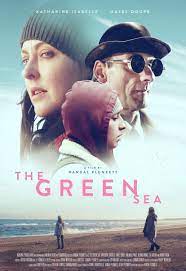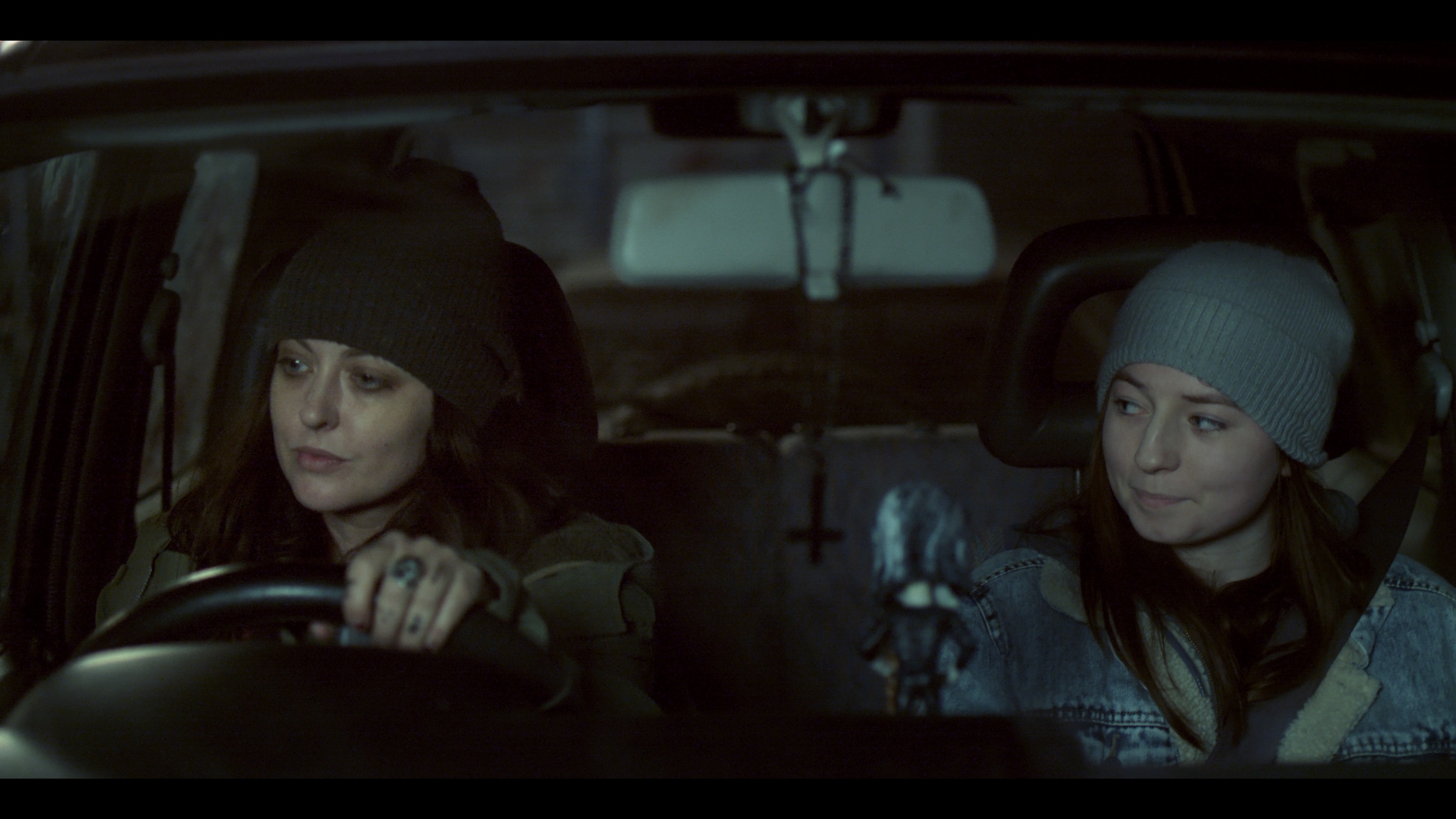
The first and most important character in The Green Sea is, fittingly enough, the landscape: this is made clear by the slow deliberation it is given on screen, as opposed to the interior spaces, which are uniformly chaotic and confining – at least, at first. A drama with some unsettling, uncomfortable content, it makes its way in a quite unorthodox way to a better place, with two great lead characters who do a great deal to reward our attention.
The young woman at the centre of all of this chaos is unnamed for a large part of the story, but for the sake of clarity, she is Simone (Katharine Isabelle). Simone is an American living in rural Ireland; she’s also a hard drinker, a loner and actively hostile to those around her. Her day job is as a writer; the whole process has ground to a halt though, and she can’t get past her writer’s block. When her jeep breaks down and she needs to interact with the local garage to get it fixed, you get a slight glimpse of something deeply destructive as she tries to navigate the situation – she disassociates, drifts off. She’s drunk when she collects the vehicle and, when she drives home regardless, she hits a young girl.
Somehow, they both make it back to the house: the girl is slightly injured, but otherwise okay. Once Simone is sure of this, she drops her off at a nearby bus stop so the girl can make her way home but, hours later, the girl is still there: she has no money, she explains, and isn’t sure where to go anyway. Simone makes her an offer: shelter, in exchange for some help around the house, and so an uneasy kind of arrangement ensues. For every initial moment where Simone relaxes and shows some kind of kindness, she flares up again, pours another drink, and dedicates herself to a helping of oblivion. Theirs is a difficult road, and dreams and flashbacks on both their parts hint at something else, maybe something sinister, but certainly something which does not show its hand at first.
I feel like I’ve done The Green Sea a disservice by adding a regular synopsis like the one above, as the film really doesn’t play out in that linear kind of way. Call it expediency on my part – it’s not an indication of anything else. One of the film’s great strengths is that it tells a story without working through a checklist; it allows itself to play out very slowly and is structured accordingly, not massively reliant on dialogue, holding onto even its most basic elements of information (such as names) and avoiding neat conclusions being drawn.

In the wrong hands, this could all feel frustratingly under-written, and many films have floundered when taking this approach, but for a few reasons that’s not the case here. Katharine Isabelle has more than enough skill as an actor to hold our interest, and doesn’t need to turn into a straightforward character to reward that interest. In fact, she’s frequently cruel and unpleasant, but you can at least to a degree sympathise with her character and wonder at how she came to be this way. Understanding the situation she has found herself in is key, as is her developing friendship with ‘the kid’ (Hazel Doupe). An alcoholic extreme metal fan and a nameless child don’t particularly often wind up as key characters, but it works very well here (and by the way, director and writer Randal Plunkett had the support of Irish metal label and distributor Invictus Productions for the film. If you’re into metal of that kind, you might recognise the odd song or shirt courtesy of Invictus, as well as some of the artworks by Fuil Arsa Art.)
The film uses on-screen chapters, which is a trend at the moment – I never feel they’re necessary, as plot shifts and developments can speak for themselves – but the film is well woven, with a gentle sort of chaos for the most part, showing things dangerously unravelling for characters you have come to care about. In its own way, the film explores the relationship between the creative process and the ways life can get in the way, but it’s also about self-forgiveness and moving on, however that might come to pass. The Green Sea can be unsettling, with some fantastical elements, but ultimately it’s a very beautiful, humane and redemptive film.
The Green Sea is available now on VOD in UK/Ireland c/o Reel 2 Reel Films/Trinity Creative Group.
